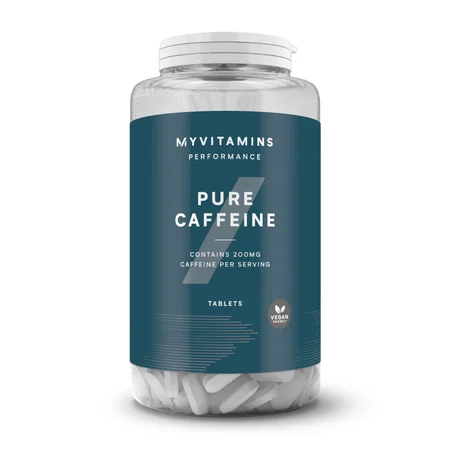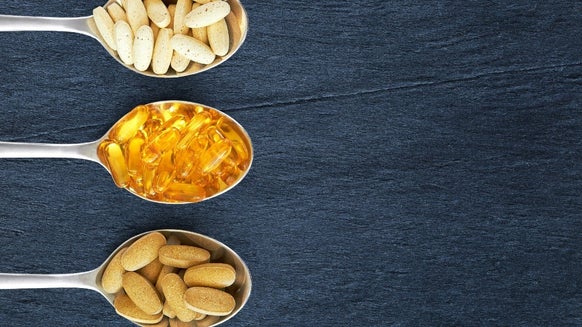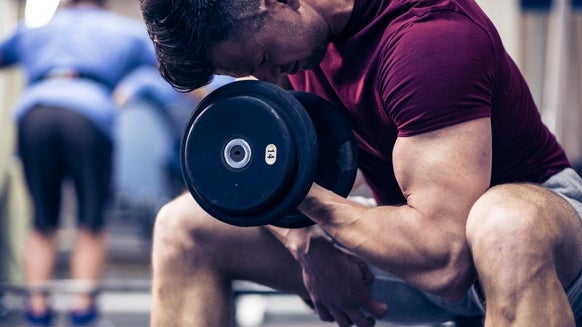At Home Athletes | This Expert Explains Why Sleep Is So Important

We want to help you become the healthiest, happiest, most athletic version of you yet. We aim to help you achieve that with our “At home Athletes” series.
This week, we’re going to be discussing sleep, what it is, why it’s important, what you should aim for and how you can improve it.

What is sleep?
What if I told you that there was an absolutely free method you could use to instantly reduce your risk of all-cause mortality risk, improve exercise recovery and performance, improve blood sugar regulation, improve the regulation of appetite controlling hormones, improve psychological well-being and improve memory formation and information retention?1
Well, it isn’t an exotic food, nor is it a herb or spice you’ve never heard of from the far reaches of the corners of the Earth. It’s not a hardcore, underground exercise technique nor is it an enlightening form of meditation hidden within the sacred temples in Tibet. It is, quite simply, a necessary function of survival that we often disregard as being unimportant in this day and age; sleep.
Sleep is described in the Oxford English Dictionary as a recurring time in which “the nervous system is inactive, the eyes closed, the postural muscles relaxed, and consciousness practically suspended.”2
Sleep onset or sleepiness is the end or accumulating result of two main regulatory functions or mechanisms — our circadian rhythm and sleep pressure. Our circadian rhythm is essentially our body’s own scheduling system in which it regulates both internal (e.g. temperature) and external (e.g. feeding) mechanisms based on the day and night cycle (which is optimal for survival).
Sleep pressure, the other main contributor to sleepiness and eventual sleep onset, is based on the build-up of chemicals (called adenosine) within our brain which gradually down regulates our “waking systems” and up regulates our “sleep systems”. This chemical accumulates based on the amount of time spent awake and is distinct from your circadian rhythm.
What role does sleep play in health?
Sleep plays an extremely diverse role in health.2 You could essentially see it as a daily “servicing” period for the body equivalent to taking your car into the garage to be repaired, cleaned, improved etc.
Some notable benefits to adequate sleep quantity and quality are:2
Sleep helps to clear out potentially harmful chemical build up in the brain, allows for improved problem solving and memory formation. Adequate sleep ensures your exercise recovery and adaptation is also working correctly and helps to better control blood sugar levels. Getting the right amount of sleep will also support your immune system in performing its various jobs as intended.
These are just a few of the important functions, mechanisms and benefits of sleep that would be most relevant to athletes but there are so many more (improving health outcomes both short and long term).2
What role does sleep play in body composition and weight management?
Sleep plays an incredibly important, yet criminally underrated role in body composition and weight management. Whilst it may seem paradoxical (surely if we’re awake longer we’re less lazy and do more exercise, burn more kcals etc.), there’s an extensive body of research in support of sleep deprivation correlating with less desirable body composition, increased bodyweight and likelihood of being overweight.
There are a number of mechanisms to explain this; firstly, sleep deprivation leaves our appetite regulating hormones all over the place and with this we see reduced satiety (fullness) responses after a meal and increased hunger between meals.3
This ultimately leads to more food intake, possibly taking us into an undesired calorie surplus. This, in tandem with sleep deprivation related poorer blood sugar control, often leads to people seeking out highly palatable, calorie dense food sources.3
Secondly, despite believing that increasing our waking hours will lead to more exercise performed and calories burned, what has been found is that it actually just increases the time we are awake to eat (again leading to an increased likelihood of excessive food intake driven by cravings, poor blood sugar control and fatigue).
Thirdly, there is also some data to show a decrease in core body temperature linked with sleep deprivation. Throwing off our thermoregulation will result in a decrease in calories expended throughout the day.3
And last, but not least, fatigue. Generally, sleep deprivation will result in you still feeling tired (as your brain will still have some leftovers of the chemicals from the previous day(s) that regulate sleep pressure). This may lead to you having an increased likelihood of avoiding exercise (due to your fatigue). It could also decrease your non-exercise activity thermogenesis that day (all the kcals your burn without planning to that make up the majority of your calorie expenditure).
What role does sleep play in exercise performance and recovery?
Sleep is just as important for exercise performance and recovery as it is for body composition and hunger levels in athletes.
Evidence has shown significant drop off in all manners of performance related metrics; time to exhaustion, distance covered, maximal power output, average power output and even accuracy (in sports such as darts, archery etc.) to name a few.4
More work has to be done but there are a number of theories as to why we see this drop off in performance when sleep takes a hit. One is obviously related to increased fatigue or exertion perception (we are already tired before we even begin training so things will feel sluggish and there could even be some tie-in to lack of motivation, concentration etc.).
The emotional component to sleep loss could also be a major contributor with perceived exertion found to increase as mood decreases.5 Another theory could be the effect of sleep loss disrupting aerobic pathways (i.e., how we produce energy). More work needs to be done however in this field to determine the effect of sleep loss on mechanisms related to exercise performance.
Disrupted or inadequate sleep can also have a significant impact on your ability to recover from exercise. Sleep restriction may result in disrupted protein metabolism and even protein catabolism (breakdown) in skeletal muscle. It can also lead to increased inflammation contributing to more muscle soreness (ouch!) and impaired recovery. It may even affect the activity of our DNA, contributing to more fat gain and more skeletal muscle breakdown.
Optimal sleeping recommendations
Getting too little sleep (as we’ve seen) as well as too much sleep can both be detrimental to health.
Evidence generally suggests that those over the age of 18 should aim for between 7 – 9 hours of quality, undisrupted sleep per night.6 Each person’s sleep requirements will be unique however and some may be able to function with less sleep and some may require slightly more.
To ensure you’re achieving quality sleep and “getting over” when you actually go to bed, try some of these practical tips:
Avoid screen emitted “blue light” several hours before bed (by either using a filter on your device or avoiding use) Have a “least mode” activity; wind down and relax before getting to bed Avoid caffeine intake at least 6 hours before bed (as caffeine has a stimulatory effect and will keep you alert and delay sleep onset) Establish a sleep routine Try to avoid consuming a lot of liquid 1 – 2 hours before sleep (as it may lead to middle of the night bathroom breaks and disrupted sleep)
Supplements that can help
Here are a few suggestions for supplements that may help with sleep (and or at least recovery);
Vitamin D – low vitamin D levels have been associated with poor sleep quality.7 Zinc and magnesium – zinc and magnesium may be beneficial for sleep quality.8,9 Casein protein powder – Casein protein can enhance recovery and increase lean body mass (without gain in bodyfat) whilst you sleep.10
Take home message
Sleep is incredibly important for athletes (and everyone else for that matter!) for optimal health, body composition, performance and recovery.
The goal should be to achieve 7 – 9 hours of quality, uninterrupted sleep a night as best as possible. Try incorporating some of our practical tips to help achieve that.
Don’t skimp on sleep, it could be the most important factor in improving your efforts as an athlete.

1. Worley, S. L. (2018). The extraordinary importance of sleep: the detrimental effects of inadequate sleep on health and public safety drive an explosion of sleep research. Pharmacy and Therapeutics, 43(12), 758.
2. Zielinski, M. R., McKenna, J. T., & McCarley, R. W. (2016). Functions and mechanisms of sleep. AIMS neuroscience, 3(1), 67.
3. St-Onge, M. P., & Shechter, A. (2014). Sleep disturbances, body fat distribution, food intake and/or energy expenditure: pathophysiological aspects. Hormone molecular biology and clinical investigation, 17(1), 29-37.
4. Walsh, N. P., Halson, S. L., Sargent, C., Roach, G. D., Nédélec, M., Gupta, L., … & Samuels, C. H. (2020). Sleep and the athlete: narrative review and 2021 expert consensus recommendations. British journal of sports medicine.
5. Vitale, J. A., La Torre, A., Baldassarre, R., Piacentini, M. F., & Bonato, M. (2017). Ratings of perceived exertion and self-reported mood state in response to high intensity interval training. A crossover study on the effect of chronotype. Frontiers in psychology, 8, 1232.
6. Chaput, J. P., Dutil, C., & Sampasa-Kanyinga, H. (2018). Sleeping hours: what is the ideal number and how does age impact this?. Nature and science of sleep, 10, 421.
7. Gao, Q., Kou, T., Zhuang, B., Ren, Y., Dong, X., & Wang, Q. (2018). The association between vitamin D deficiency and sleep disorders: a systematic review and meta-analysis. Nutrients, 10(10), 1395.
8. Cherasse, Y., & Urade, Y. (2017). Dietary zinc acts as a sleep modulator. International journal of molecular sciences, 18(11), 2334.
9. Abbasi, B., Kimiagar, M., Sadeghniiat, K., Shirazi, M. M., Hedayati, M., & Rashidkhani, B. (2012). The effect of magnesium supplementation on primary insomnia in elderly: A double-blind placebo-controlled clinical trial. Journal of research in medical sciences: the official journal of Isfahan University of Medical Sciences, 17(12), 1161.
10. Jäger, R., Kerksick, C. M., Campbell, B. I., Cribb, P. J., Wells, S. D., Skwiat, T. M., … & Antonio, J. (2017). International society of sports nutrition position stand: protein and exercise. Journal of the International Society of Sports Nutrition, 14(1), 1-25.










